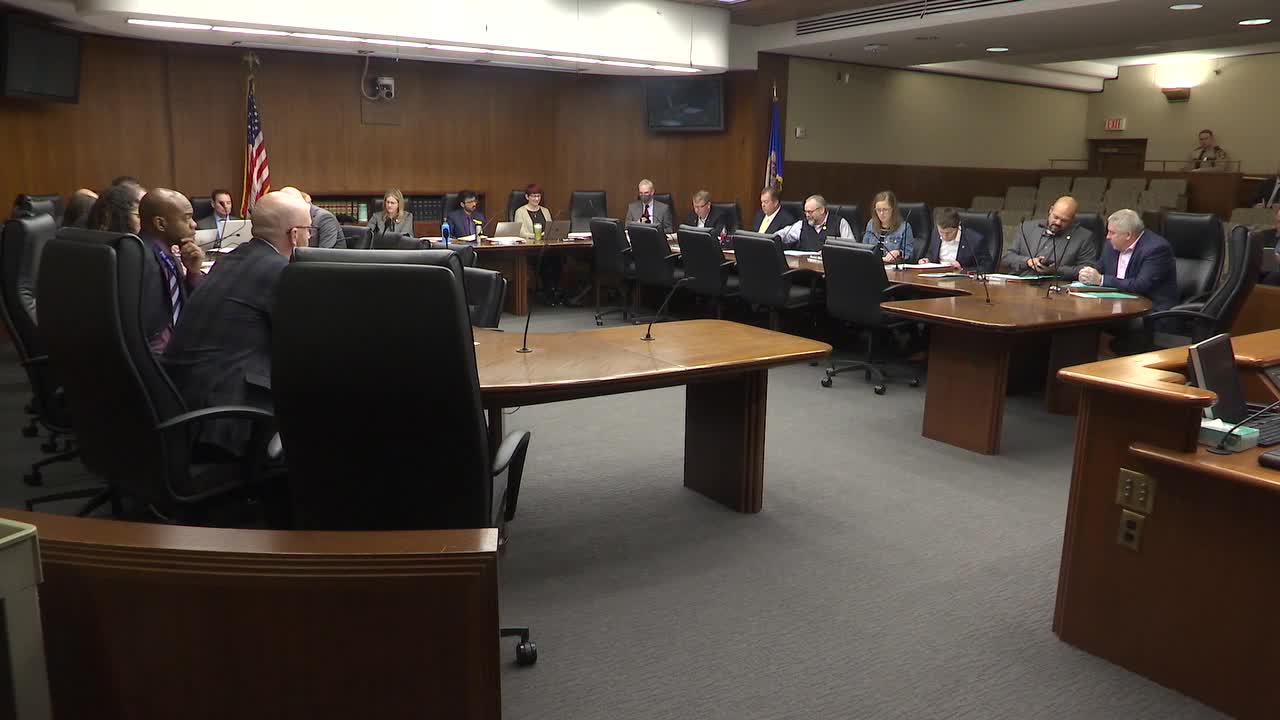Package of House bills said to tighten oversight of hiring police, misconduct investigations
[anvplayer video=”5160342″ station=”998122″]
More authority could be coming to the Minnesota regulatory agency that sets police standards for training, licensing and conduct. Lawmakers began debate Tuesday over a package of two bills that would add another layer of checks and balances in the process of hiring officers and investigating misconduct.
House Files 822 & 823 are the first bills to be penned by first-term Rep. Brion Curran (DFL-Vadnais Heights). The former Chisago County deputy, pitching the bills to fellow lawmakers on the House Public Safety Finance and Policy Committee, referenced George Floyd’s murder and the recent violent beating of Tyre Nichols in Memphis as a “disgrace to law enforcement,” and called on Minnesota to set a higher standard going forward.
“That tragedy and those similar create an unfortunately negative perception of what many of us know is a necessary and honorable profession,” Rep. Curran said.
The first bill (HF 823) would tighten up background checks for new police officers, requiring they include a criminal history report from the MN Bureau of Criminal Apprehension (BCA). The BCA report is considered the most comprehensive source for a statewide background check, Curran said in an interview following the meeting.
“Yes, that would have a comprehensive criminal background check in the state of Minnesota, as is required by many other professions that, in fact, don’t hold a license. So it just brings peace officers to the same standard,” she said. “While it could’ve been a simple oversight, the implications could be quite disastrous.”

The bill would also allow that information to then be shared with the Peace Officer Standards and Training (POST) Board, the agency with the sole authority to license or revoke licenses for police officers.
The second bill (HF 822) would mandate law enforcement agencies investigating an officer for misconduct share the details of that investigation with the POST Board.
Regardless of the outcome of law enforcement agency’s investigation, the POST Board still has to decide if the officer keeps their license.
As it stands, the Board is regularly put through court proceedings in order to get access to that needed information, Curran explained. Other times, the Board has to investigate from scratch, POST Board director Erik Misselt said, while testifying in support of both bills.
“We are re-interviewing potential victims. The officer, or the accused themselves, is hanging out there for months waiting to know what’s going to happen,” Misselt said.
The delay in the final decision also prolongs the time it takes for victims of police misconduct to get closure, Curran said.
One concern raised during the roughly hour-long discussion was about officer privacy. The bills would naturally force the sharing of their confidential data with additional people (a few POST Board members, according to Misselt). The POST Board has the same security standards as law enforcement agencies, Misselt said in response to the concern raised by a lawmaker and in the sole citizen testimony. More discussion on that is expected as the bills both move to the Committee on Judiciary Finance and Civil Law.
The bills are sponsored entirely by DFL representatives. Curran welcomed additional bipartisan discussion.